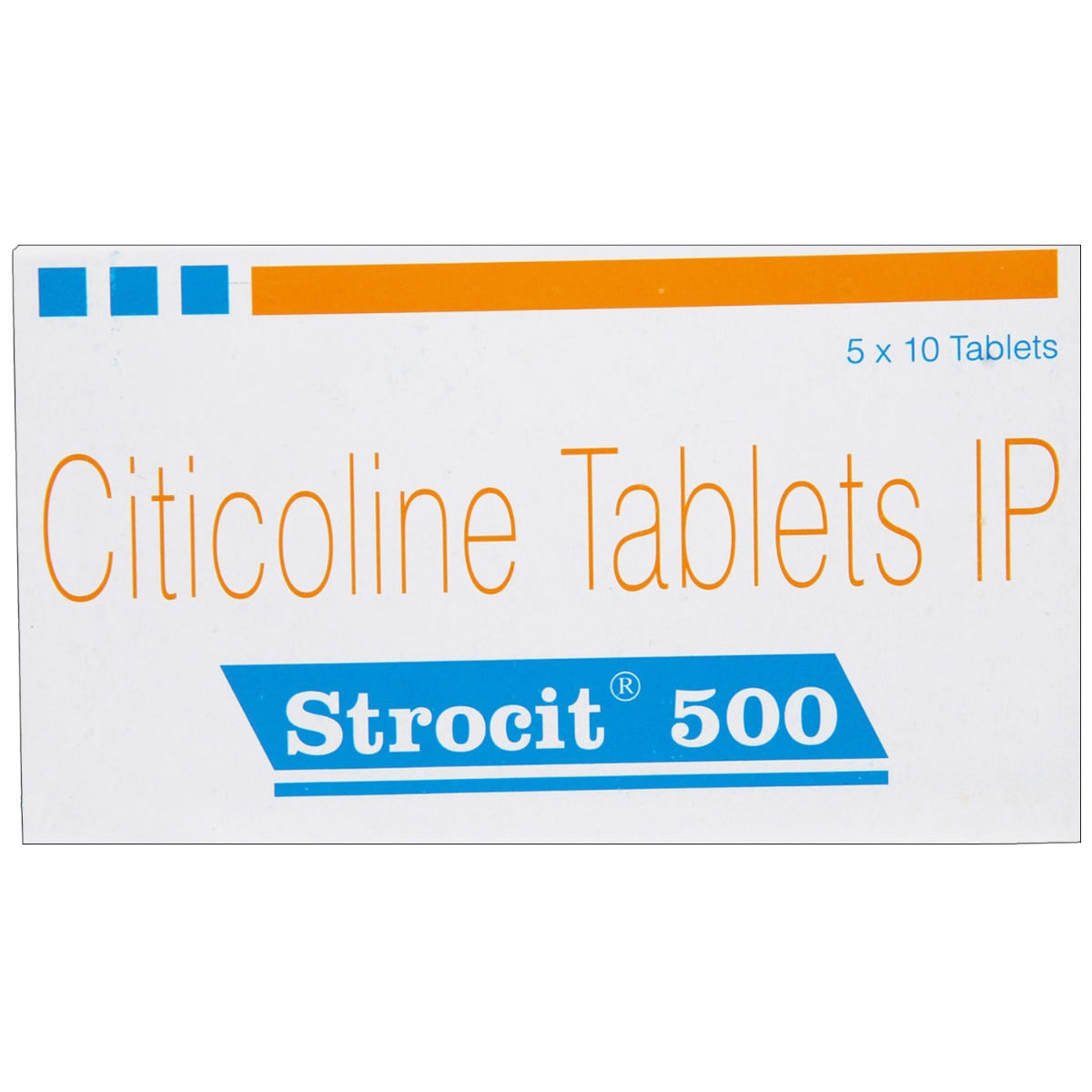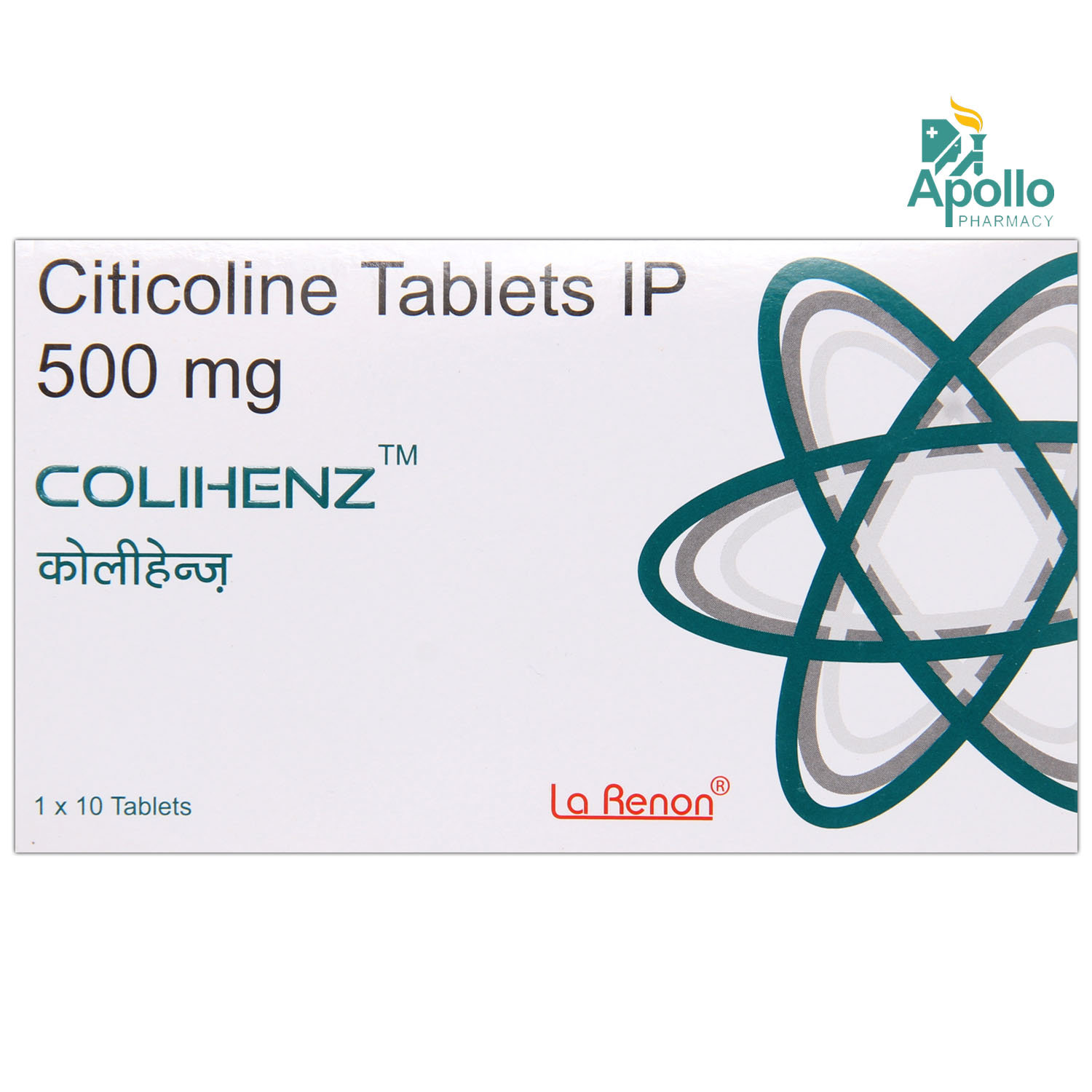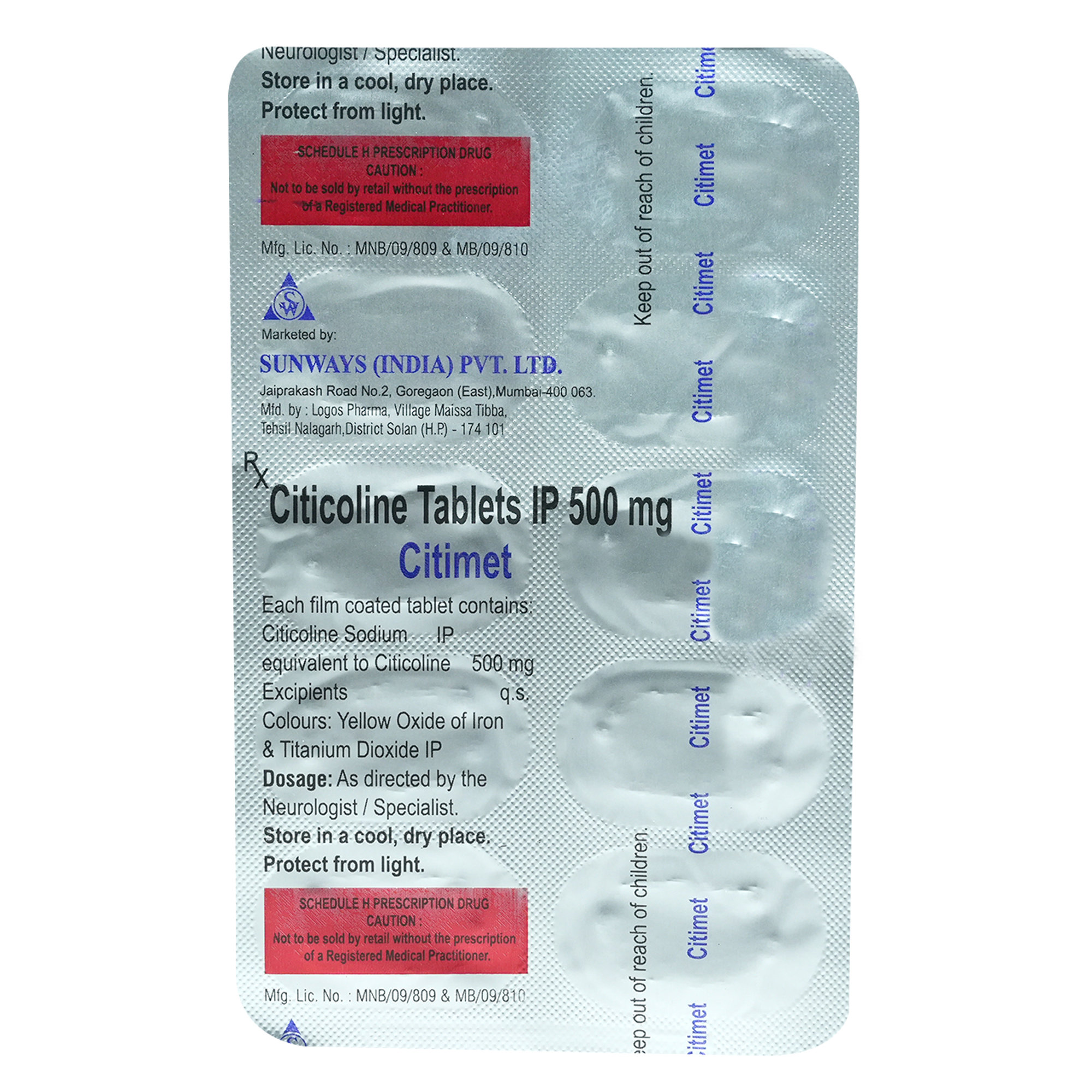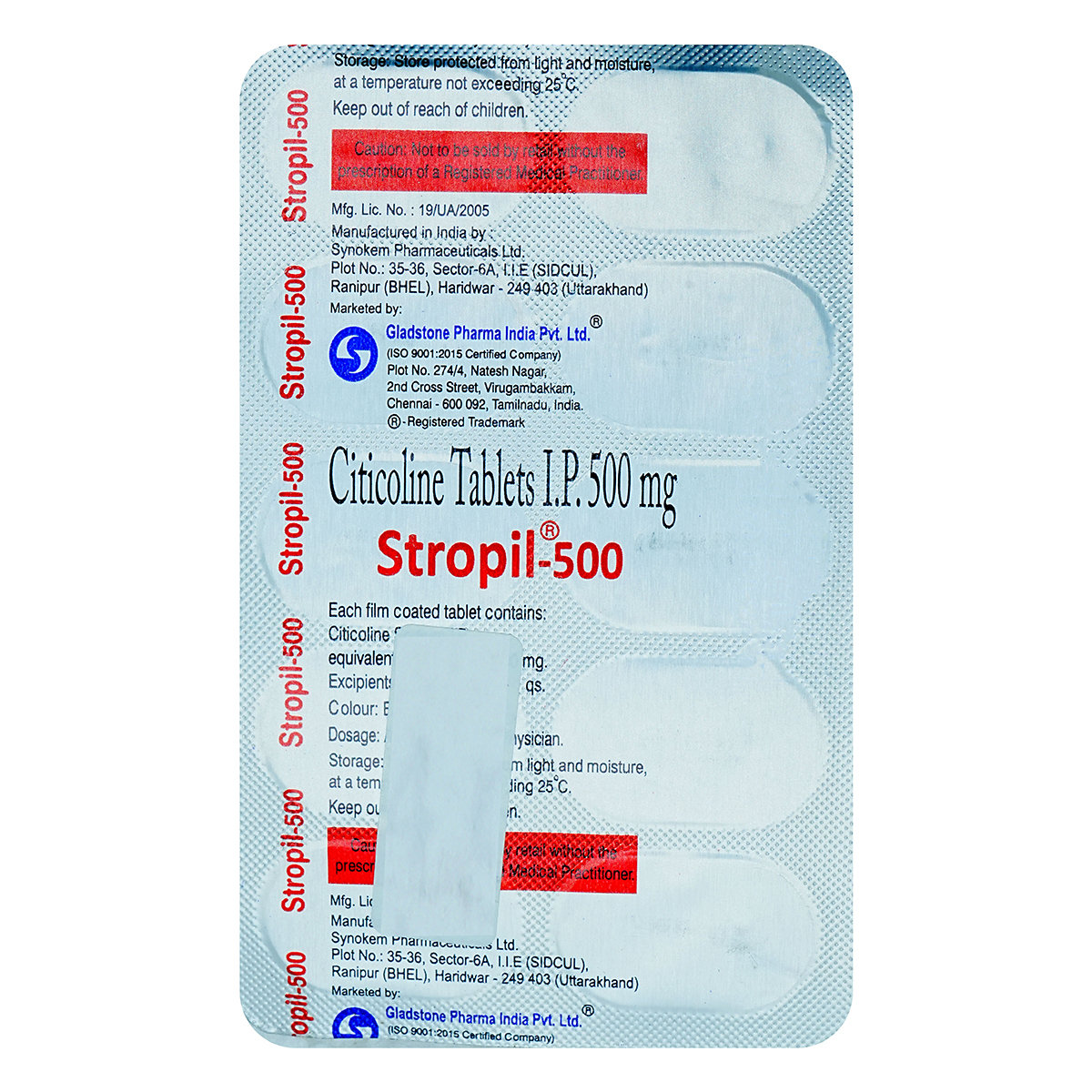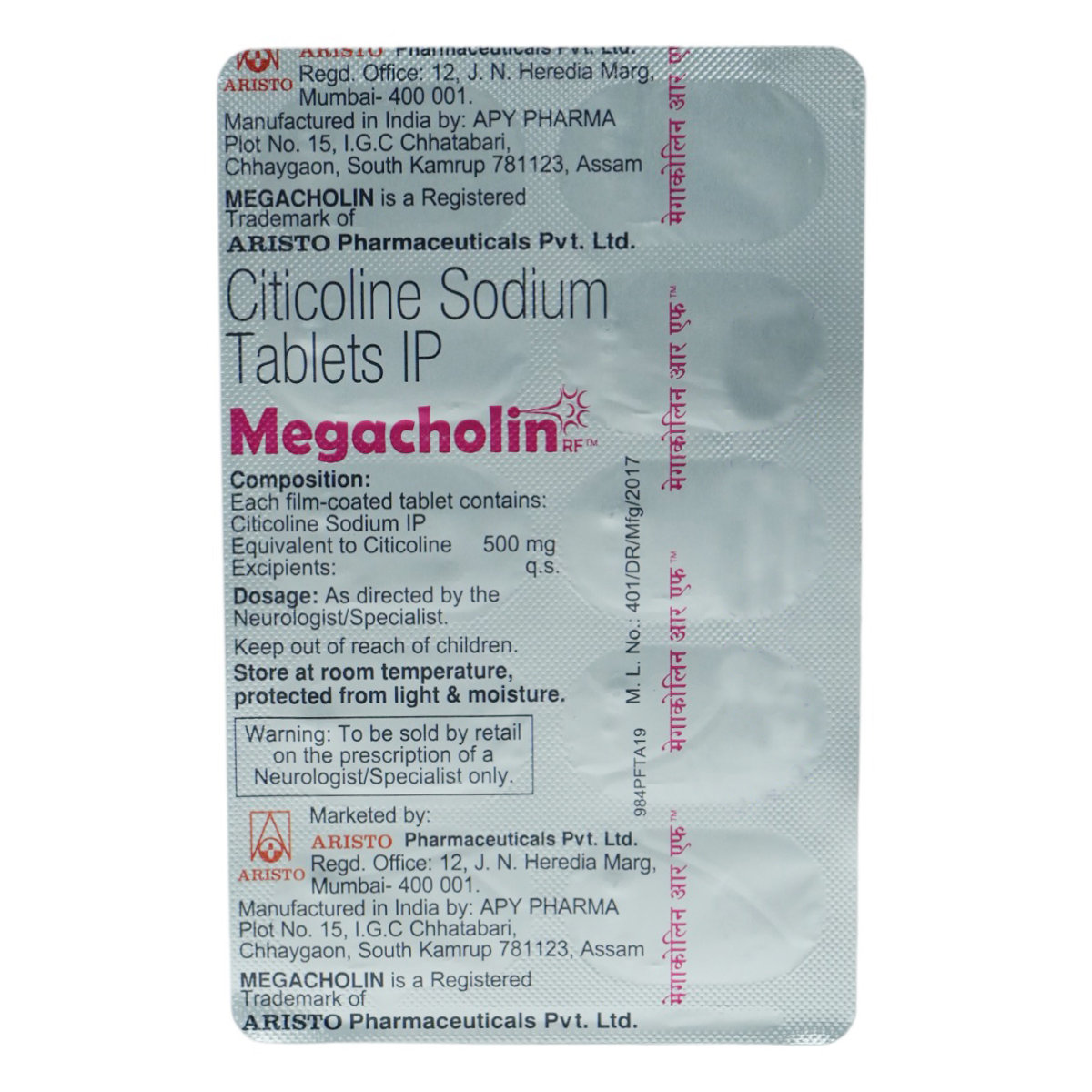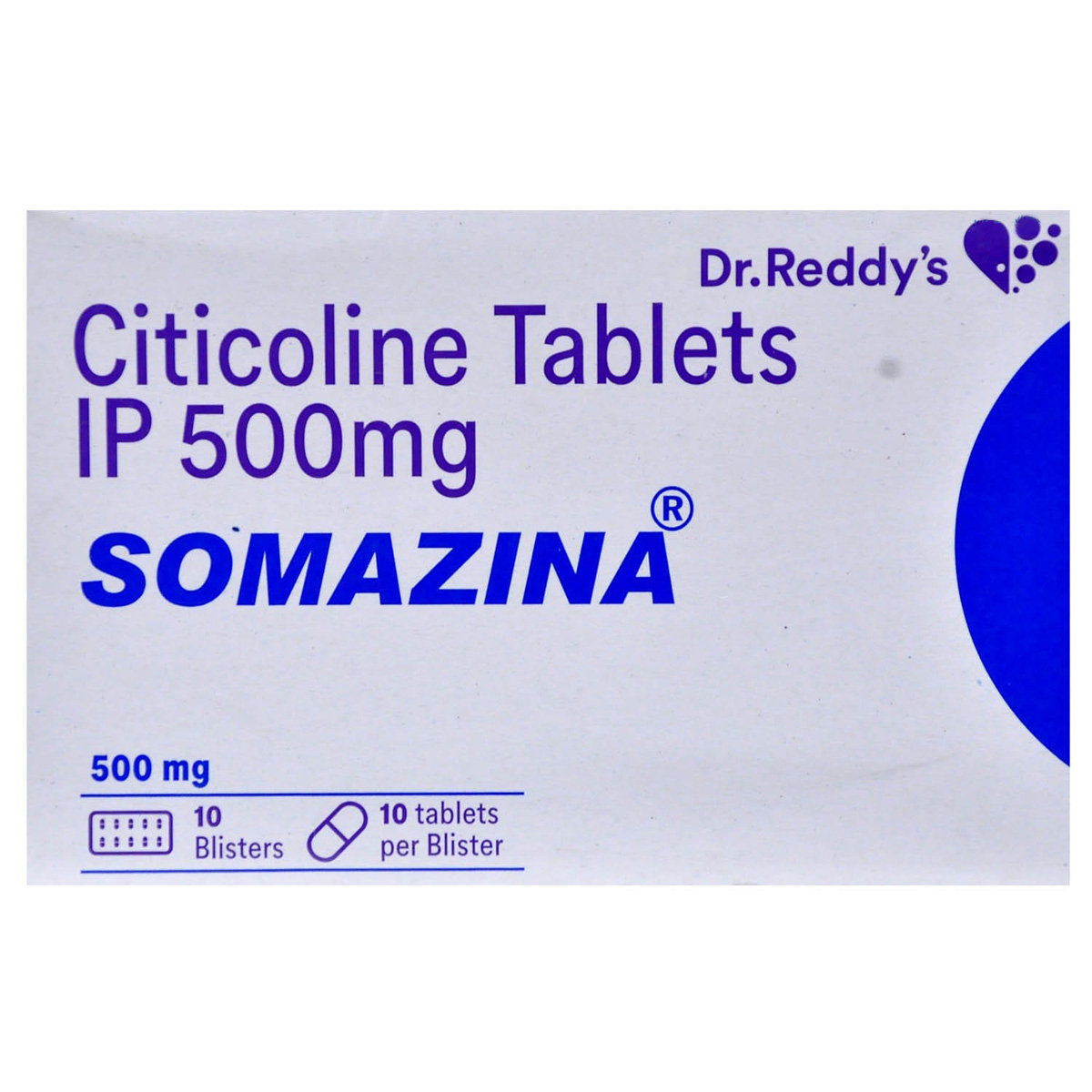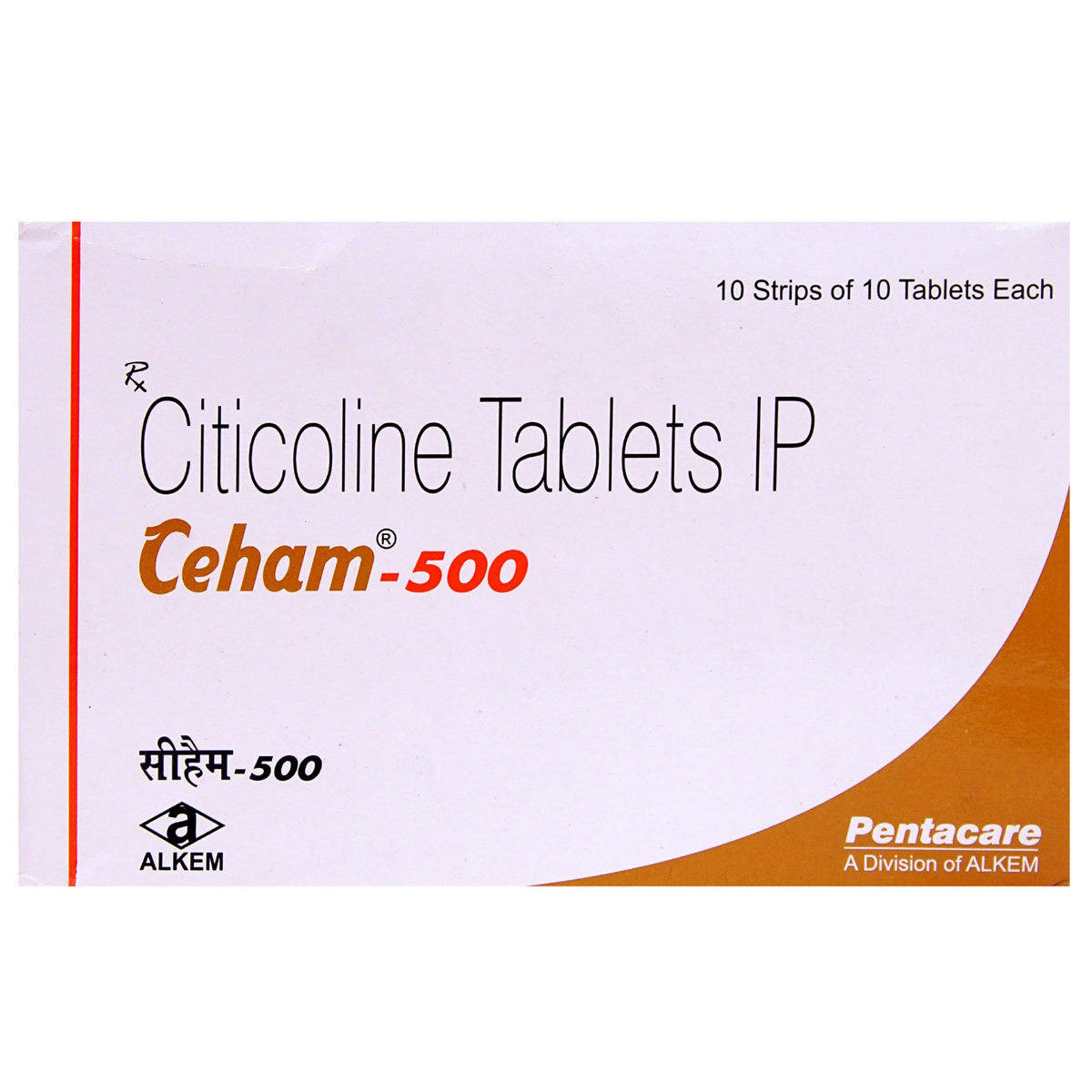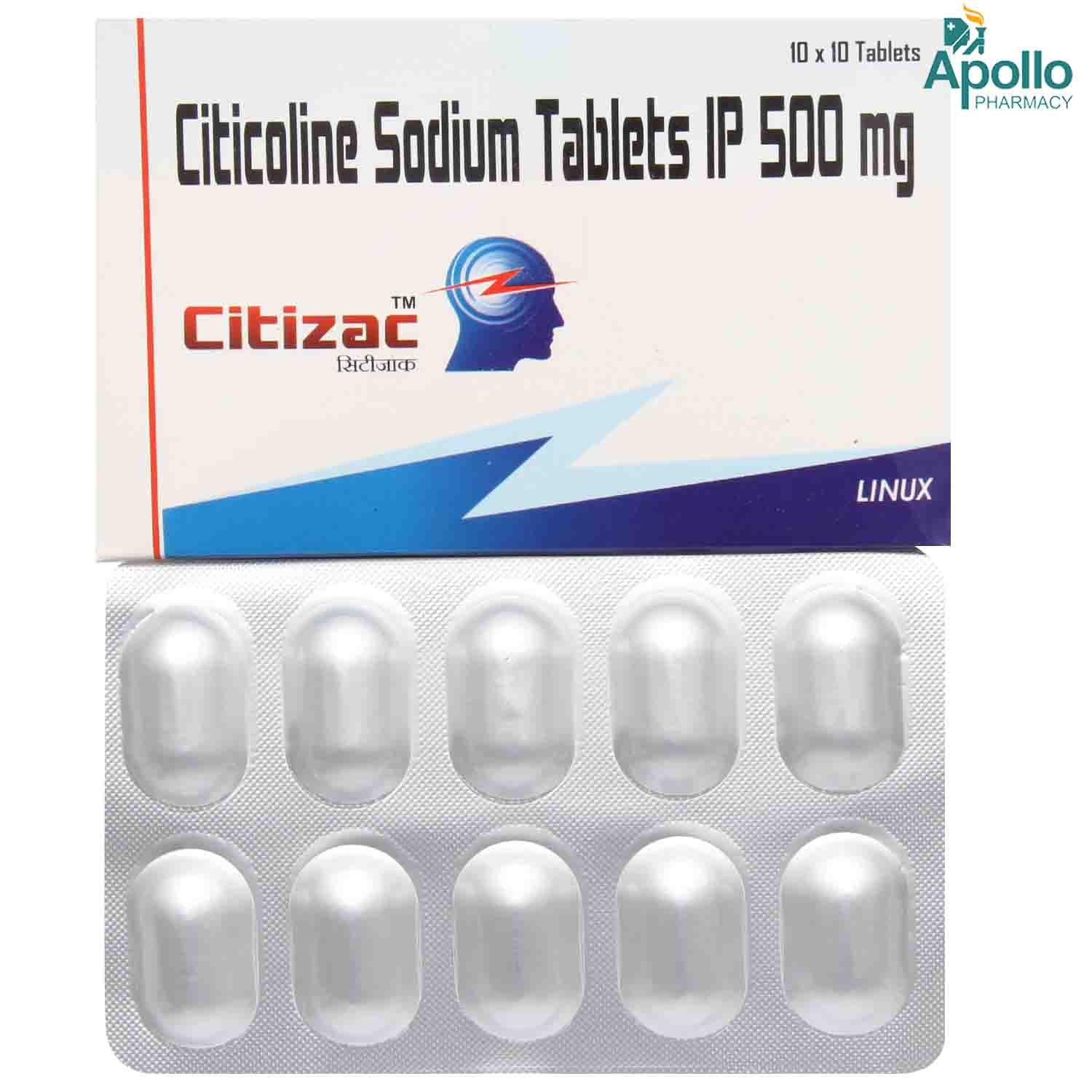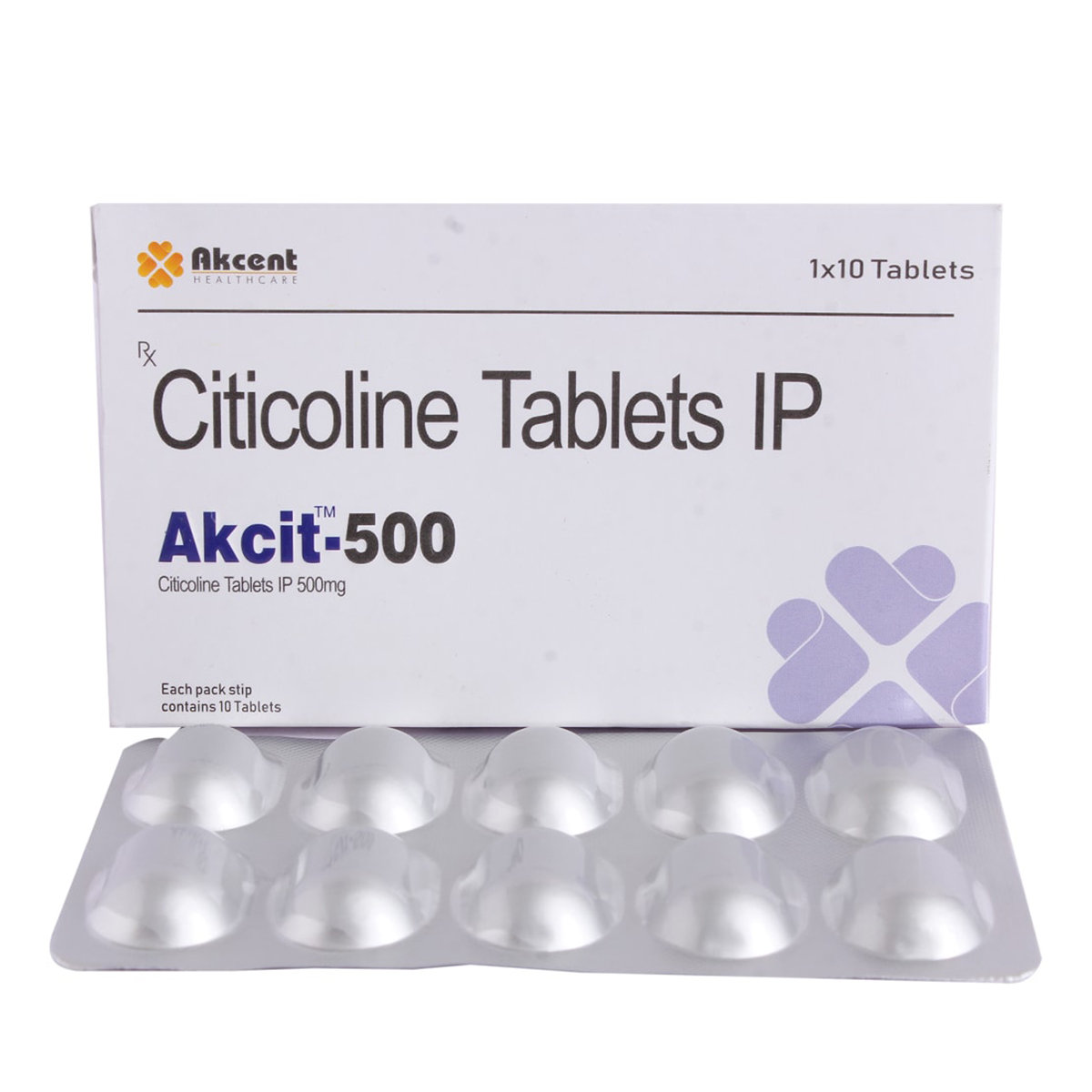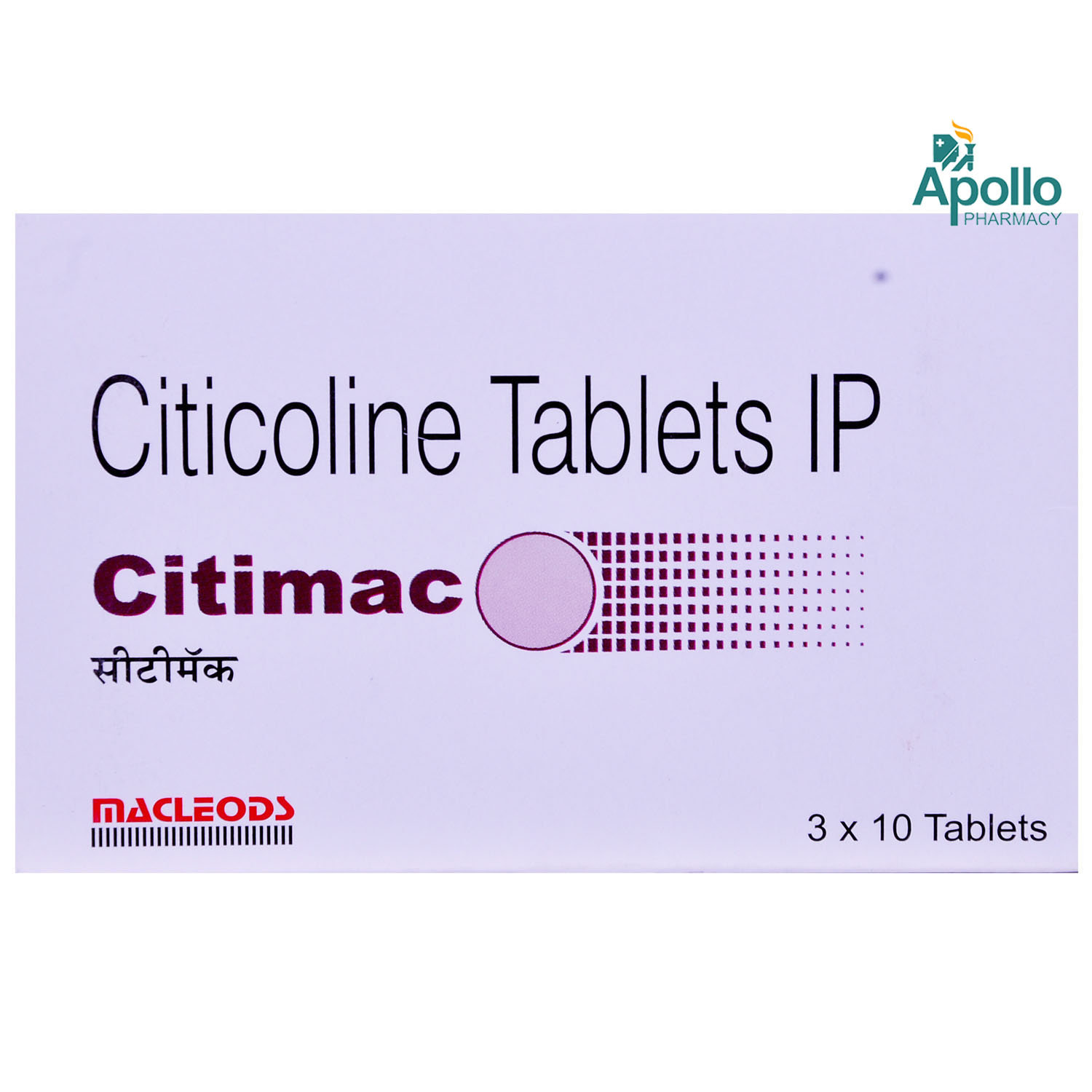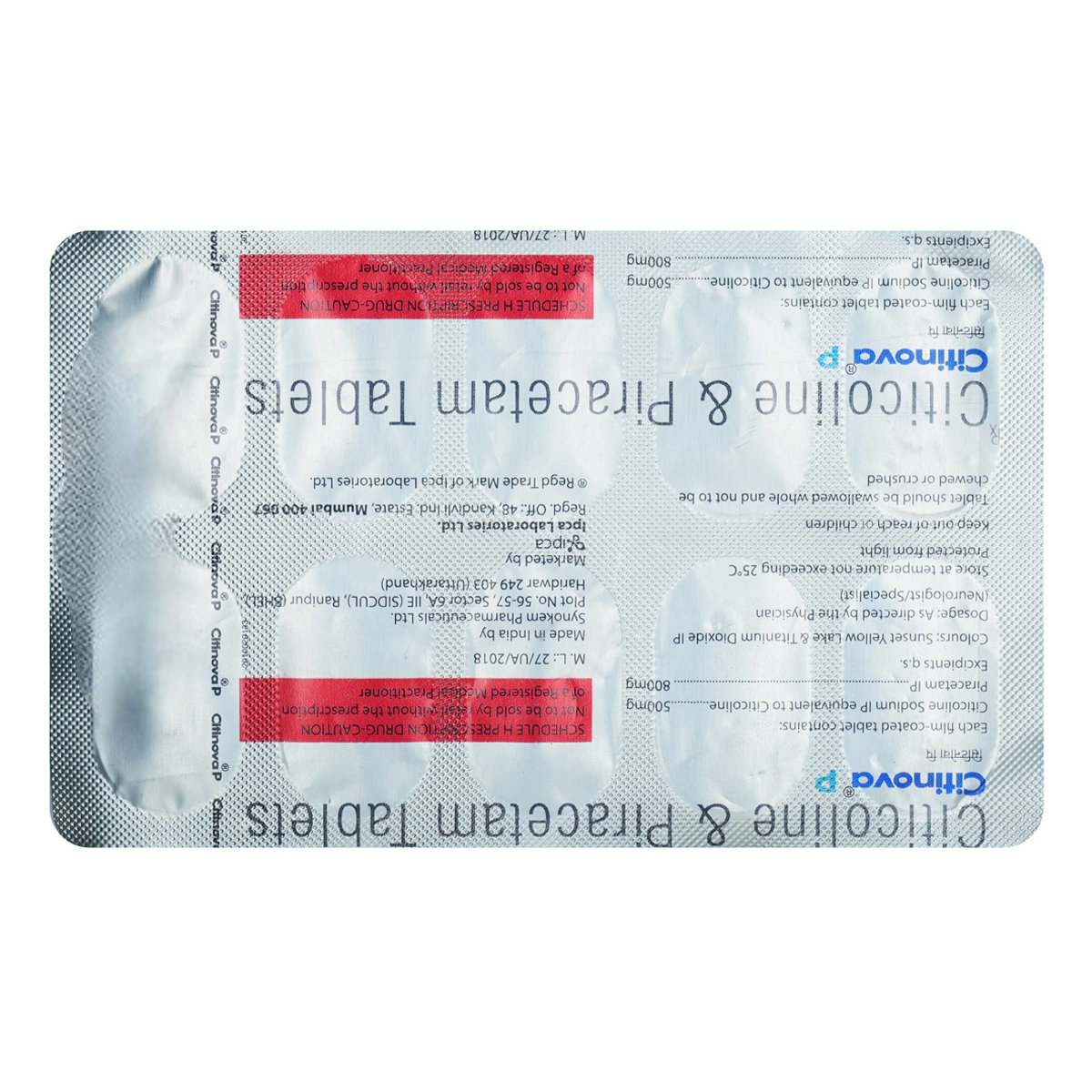Citimed Tablet 10's


MRP ₹420
(Inclusive of all Taxes)
₹63.0 Cashback (15%)
Provide Delivery Location
Online payment accepted
 Prescription drug
Prescription drugWhats That
Composition :
Manufacturer/Marketer :
Consume Type :
Return Policy :
Expires on or after :
About Citimed Tablet
Citimed Tablet belongs to a group of medications called ‘psychostimulants’ used to treat stroke, head trauma or injury, Alzheimer’s disease, Parkinson’s disease, and glaucoma. A stroke occurs due to insufficient blood supply to the brain. Alzheimer’s disease is a progressive age-related memory loss. Parkinson’s disease is a progressive brain disorder that affects movement. Glaucoma is an eye problem that occurs due to damage to the optic nerve, responsible for vision.
Citimed Tablet contains 'Citicoline’, a psychostimulant or nootropic used to nourish and minimize damage to the nerve cells in various conditions associated with the brain. It increases the activity of the central nervous system (brain and spinal cord). It regenerates nerve cells by promoting the synthesis of phospholipids (forms neuronal membrane) in the brain. It improves learning, memory, judging, and thinking processes. It can improve recovery in patients with disturbance in consciousness in patients with head injury or any other problems associated with the brain and who underwent surgery.
You may experience some side effects such as gastrointestinal disturbances, including nausea, constipation or diarrhoea, abdominal pain, headache, blurred vision, insomnia (trouble sleeping), hypotension (decrease in blood pressure), increased or decreased heart rate, and restlessness. Most of these side effects do not require medical attention. However, if the symptoms persist or get worsen, consult a doctor immediately.
Before taking the Citimed Tablet , let your doctor know about all your allergic or hypersensitivity reactions to medicines or food. Inform your doctor if you are suffering from kidney, liver, or heart disease. If you are pregnant or breastfeeding, please tell your doctor so that your doctor will weigh the benefits and any potential risks before prescribing it to you. Keep your doctor informed about your health condition and all the medicines you are taking before taking Citimed Tablet to rule out any side effects.
Uses of Citimed Tablet
Directions for Use
Medicinal Benefits
Citimed Tablet contains 'Citicoline,' which belongs to the class of ‘psychostimulants.’ It is used to promote brain health. It is used to treat stroke, head injury, Alzheimer’s disease, Parkinson’s disease, and glaucoma. It protects the brain from neurotoxicity (damage to the brain). It acts as a precursor for phospholipids (present in the outer membrane of the nerve cell) and also stimulates phospholipid synthesis in the brain. It also stimulates blood flow and oxygen consumption in the brain. This promotes brain activity and improves cognition, memory, and thinking capabilities in patients with progressive brain disorders. It accelerates the recovery rate in patients with neurological diseases (diseases affecting the brain).
Storage
- Avoid driving or operating machinery or activities that require high focus until you know how the medication affects you.
- Maintain a fixed sleeping schedule, create a relaxing bedtime routine and ensure your sleeping space is comfortable to maximize your sleep quality.
- Limit alcohol and caffeine as these may worsen drowsiness and disturb sleep patterns.
- Drink plenty of water as it helps with alertness and keeps you hydrated and for overall well-being.
- Moderate physical activity can improve energy levels, but avoid intense workouts right before bedtime.
- Hydrate your body: Drink enough water to prevent dehydration and headaches.
- Calm Your Mind: Deep breathing and meditation can help you relax and relieve stress.
- Rest and Recharge: Sleep for 7-8 hours to reduce headache triggers.
- Take rest: lie down in a quiet, dark environment.
- Cold or warm compresses can help reduce tension.
- Stay Upright: Maintain good posture to keep symptoms from getting worse.
- To treat headaches naturally, try acupuncture or massage therapy.
- Over-the-counter pain relievers include acetaminophen and ibuprofen.
- Prescription Assistance: Speak with your doctor about more substantial drug alternatives.
- Severe Headaches: Seek emergency medical assistance for sudden, severe headaches.
- Frequent Headaches: If you get reoccurring headaches, consult your doctor.
- Headaches with Symptoms: Seek medical attention if your headaches include fever, disorientation, or weakness.
- Rest well; get enough sleep.
- Eat a balanced diet and drink enough water.
- Manage stress with yoga and meditation.
- Limit alcohol and caffeine.
- Physical activities like walking or jogging might help boost energy and make you feel less tired.
- Inform your doctor about dizziness symptoms. They may adjust your medication regimen or prescribe additional medications to manage symptoms.
- Follow your doctor's instructions for taking medication, and take it at the same time every day to minimize dizziness.
- When standing up, do so slowly and carefully to avoid sudden dizziness.
- Avoid making sudden movements, such as turning or bending quickly, which can exacerbate dizziness.
- Drink plenty of water throughout the day to stay hydrated and help alleviate dizziness symptoms.
- If you're feeling dizzy, sit or lie down and rest until the dizziness passes.
- Track when dizziness occurs and any factors that may trigger it, and share this information with your doctor to help manage symptoms.
- Inform Your Doctor: Notify your doctor immediately about your diarrhoea symptoms. This allows them to adjust your medication or provide guidance on managing side effects.
- Stay Hydrated: Drink plenty of fluids to replace lost water and electrolytes. Choose water, clear broth, and electrolyte-rich drinks. Avoid carbonated or caffeinated beverages to effectively rehydrate your body.
- Follow a Bland Diet: Eat easy-to-digest foods to help firm up your stool and settle your stomach. Try incorporating bananas, rice, applesauce, toast, plain crackers, and boiled vegetables into your diet.
- Avoid Trigger Foods: Steer clear of foods that can worsen diarrhoea, such as spicy, fatty, or greasy foods, high-fibre foods, and dairy products (especially if you're lactose intolerant).
- Practice Good Hygiene: Maintain good hygiene to prevent the spread of infection. To stay healthy, wash your hands frequently, clean and disinfect surfaces regularly, and avoid exchanging personal belongings with others.
- Take Anti-Diarrheal Medications: If your doctor advises, anti-diarrheal medications such as loperamide might help manage diarrhoea symptoms. Always follow your doctor's directions.
- Keep track of your diarrhoea symptoms. If they don't get better or worse or are accompanied by severe stomach pain, blood, or dehydration signs (like extreme thirst or dark urine), seek medical help.
- If you experience persistent or severe malaise (a general feeling of discomfort, illness, or unease) after taking medication, seek medical attention immediately.
- Inform your doctor about the medication you're taking and the symptoms you're experiencing.
- Your treatment plan may be modified, which may include adjusting the dosage, substituting with an alternative medication, or discontinuing the medication. Additionally, certain lifestyle changes may be recommended to help manage symptoms.
- To manage malaise symptoms, follow your doctor's advice, such as getting plenty of rest, staying hydrated, and practicing stress-reducing techniques.
- Track your symptoms regularly and report any changes or concerns to your healthcare provider to ensure the malaise is managed effectively.
- Preventing Vomiting (Before it Happens)
- Take medication exactly as prescribed by your doctor. This can help minimize side effects, including vomiting.
- Having a small meal before taking your medication can help reduce nausea and vomiting.
- Talk to your doctor about taking anti-nausea medication along with your prescribed medication.
- Managing Vomiting (If it Happens)
- Try taking ginger in the form of tea, ale, or candy to help alleviate nausea and vomiting.
- What to Do if Vomiting Persists
- Consult your doctor if vomiting continues or worsens, consult the doctor for guidance on adjusting your medication or additional treatment.
Drug Warnings
Before taking the Citimed Tablet , let your doctor know about all your allergic or hypersensitivity reactions to medicines or food. Inform your doctor if you are suffering from kidney, liver, or heart disease. If you are pregnant or breastfeeding, please tell your doctor so that your doctor will weigh the benefits and any potential risks before prescribing it to you. Keep your doctor informed about your health condition and all the medicines you are taking before taking Citimed Tablet to rule out any side effects.
Drug-Drug Interactions
Drug-Drug Interactions
Login/Sign Up
Co-administration of Citimed Tablet with esketamine may increase the side effects.
How to manage the interaction:
Although there is an interaction, Citimed Tablet can be taken with esketamine if prescribed by the doctor. Consult the prescriber if you experience drowsiness, confusion, difficulty concentrating, and impairment in thinking, judgment, reaction speed, and motor coordination. Do not discontinue the medication without consulting a doctor.
Drug-Food Interactions
Drug-Food Interactions
Login/Sign Up
Diet & Lifestyle Advise
- Include more green, leafy vegetables and other non-starchy vegetables (tomatoes, broccoli, cauliflower, etc.) in your diet.
- Eat strawberries, blueberries, blackberries, and nuts as they reduce inflammation in the brain.
- Use olive oil for cooking purposes. It contains healthy fats that promote brain health.
- Eat whole grains such as oats, quinoa, and brown rice that are rich in nutrients.
- Opt for fish oil or eat fish (preferably fatty fish like salmon, sardines, trout, and tuna) at least once a week. They are rich in omega-3 fatty acids essential for the brain's normal functioning.
- Avoid fried, processed, and packed foods.
- Quit alcohol intake and smoking.
- Exercise regularly.
Side Effects of Citimed Tablet
- Nausea
- Constipation
- Diarrhea
- Headache
- Insomnia (trouble sleeping)
- Hypotension (decrease in blood pressure)
- Blurred vision
- Increase or decrease in heart rate
- Restlessness
Habit Forming
Therapeutic Class
Product Substitutes
Drug-Diseases Interactions
Drug-Diseases Interactions
Login/Sign Up
Citimed Tablet is largely excreted by the kidneys, but it also passes through some liver metabolism. Due to poor medication clearance, patients with renal and/or hepatic illness may be more susceptible to Citimed Tablet's side effects.
How to manage the interaction:
Patients with renal and/or liver disease may be at greater risk for adverse effects from Citimed Tablet due to decreased drug clearance.
FAQs
Citimed Tablet contains citicoline which is a precursor for phospholipids (forms the outer layer of nerve cells). It also stimulates phospholipid synthesis in the brain, thus protecting nerve cells or neurons. It increases brain activity and improves symptoms in patients with neurological diseases.
Citimed Tablet can cause insomnia (sleeplessness). However, not everybody taking Citimed Tablet experience this side-effect.
Citimed Tablet is possibly safe and may not show any toxic side effects. It is usually well-tolerated in patients when given in therapeutic doses (dose required to treat the disease).
Citimed Tablet can be taken for the long-term when advised by a doctor. It can considerably improve memory, thinking, and behavioral skills when taken long-term in patients with brain disorders.
Parkinson’s disease is a progressive brain disorder that occurs due to a decrease in dopamine (a hormone responsible for motor function or movements) levels in the brain. The symptoms include tremors, impaired balance, difficulty speaking, decreased movement, and change in writing.
Citicoline is chemically identical to the cytidine-diphosphocholine (CDP-choline). CDP-choline is naturally present in the body, whereas citicoline is available as a dietary supplement.
Drug-Drug Interactions Checker List
- LEVODOPA
- MECLOFENOXATE
- ENTACAPONE
- CARBIDOPA
Special Advise
- A mini-mental state examination (MMSE) may be performed to measure the patient's cognitive status (gaining knowledge and comprehension ability). It is a 30-point questionnaire in which 24 or more points indicate normal cognition.
Disease/Condition Glossary
Stroke: Stroke, also called cerebrovascular (CV) stroke, occurs when there is a decreased blood supply to the brain due to the presence of a blood clot or leakage of blood vessels. The decrease in blood supply leads to a decrease in oxygen and nutrients resulting in the death of brain cells. This condition leads to paralysis of the face, arm, or leg, slurred speech, headache, and difficulty walking.
Head trauma: Brain dysfunction due to trauma or injury to the head.
Alzheimer’s disease: Alzheimer's disease is a progressive and irreversible brain disorder that occurs due to degeneration or death of brain cells. The characteristic symptom of this disease is dementia, in which patients experience a decline in thinking, behaviour, and social skills.
Parkinson’s disease: Parkinson’s disease is a progressive brain disorder that occurs due to decreased dopamine levels (a hormone responsible for motor function or movements) in the brain. The symptoms include tremors, impaired balance, difficulty speaking, decreased movement, and change in writing.
Glaucoma: Glaucoma occurs due to damage to the optic nerve, which is responsible for vision. Abnormal high pressure in the eye causes damage to the optic nerve. This condition may progress to blindness if left untreated.

Have a query?
Buy best C.n.s Drugs products by
Intas Pharmaceuticals Ltd
Sun Pharmaceutical Industries Ltd
Torrent Pharmaceuticals Ltd
Alkem Laboratories Ltd
Abbott India Ltd
Cipla Ltd
Alteus Biogenics Pvt Ltd
Micro Labs Ltd
Lupin Ltd
Ipca Laboratories Ltd
D D Pharmaceuticals Pvt Ltd
Icon Life Sciences
Mankind Pharma Pvt Ltd
Tripada Healthcare Pvt Ltd
Arinna Lifesciences Ltd
Linux Laboratories Pvt Ltd
East West Pharma India Pvt Ltd
La Renon Healthcare Pvt Ltd
Talent India Pvt Ltd
Tas Med India Pvt Ltd
Zydus Healthcare Ltd
Cnx Health Care Pvt Ltd
Eris Life Sciences Ltd
Leeford Healthcare Ltd
Emcure Pharmaceuticals Ltd
Macleods Pharmaceuticals Ltd
Sigmund Promedica
Aristo Pharmaceuticals Pvt Ltd
Dr Reddy's Laboratories Ltd
Troikaa Pharmaceuticals Ltd
Consern Pharma Ltd
Zydus Cadila
Shine Pharmaceuticals Ltd
Wockhardt Ltd
Ardent Life Sciences Pvt Ltd
Crescent Formulations Pvt Ltd
Theo Pharma Pvt Ltd
Reliance Formulation Pvt Ltd
Ikon Pharmaceuticals Pvt Ltd
Propel Healthcare
Neon Laboratories Ltd
Jagsam Pharma
Msn Laboratories Pvt Ltd
Morepen Laboratories Ltd
Pulse Pharmaceuticals
Sanofi India Ltd
Med Manor Organics Pvt Ltd
Hetero Healthcare Pvt Ltd
Novartis India Ltd
Crescent Therapeutics Ltd
Elder Pharmaceuticals Ltd
Solvate Laboratories Pvt Ltd
Akumentis Healthcare Ltd
Mova Pharmaceutical Pvt Ltd
Psyco Remedies Ltd
Tripada Lifecare Pvt Ltd
Ajanta Pharma Ltd
Cyrus Remedies Pvt Ltd
Medishri Healthcare Pvt Ltd
Cadila Healthcare Ltd
Glenmark Pharmaceuticals Ltd
Matteo Health Care Pvt Ltd
Hbc Life Sciences Pvt Ltd
Lyf Healthcare
Matias Healthcare Pvt Ltd
Mesmer Pharmaceuticals
Alembic Pharmaceuticals Ltd
Capital Pharma
Crescent Pharmaceuticals
Medopharm Pvt Ltd
Alniche Life Sciences Pvt Ltd
Kivi Labs Ltd
Talin Remedies Pvt Ltd
USV Pvt Ltd
Quince Lifesciences Pvt Ltd
Solis Pharmaceuticals
Infivis Life Care
Zuventus Healthcare Ltd
Cadila Pharmaceuticals Ltd
Pfizer Ltd
Wallace Pharmaceuticals Pvt Ltd
A N Pharmacia Laboratories Pvt Ltd
Blue Cross Laboratories Pvt Ltd
Jenburkt Pharmaceuticals Ltd
Lia Life Sciences Pvt Ltd
Mano Pharma
Medley Pharmaceuticals Ltd
Primus Remedies Pvt Ltd
FDC Ltd
Maneesh Pharmaceuticals Ltd
Apex Laboratories Pvt Ltd
Gagnant Healthcare Pvt Ltd
Ozone Pharmaceuticals Ltd
RPG Life Sciences Ltd
Strides Shasun Ltd
Unichem International
GlaxoSmithKline Pharmaceuticals Ltd
Kuresys Labs Pvt Ltd
LA Pharma
Trion Pharma India Llp
Alcohol
Caution
Citimed Tablet may or may not interact with alcohol. However, alcohol worsens neurological conditions. So, it is better to avoid consuming alcohol.
Pregnancy
Caution
You should not take Citimed Tablet during pregnancy unless prescribed by a doctor. The safety of this medicine for use during pregnancy has not been established.
Breast Feeding
Caution
A breastfeeding mother should not take Citimed Tablet unless prescribed by a doctor.
Driving
Caution
Citimed Tablet may cause blurred vision and a decrease in blood pressure. So, it is recommended to be cautious to drive or operate heavy machinery after taking Citimed Tablet .
Liver
Caution
Limited information was available for the use of Citimed Tablet in patients suffering from liver impairment. Please consult your doctor if you have any concerns regarding using Citimed Tablet in patients with liver impairment. Your doctor will prescribe only if the benefits outweigh the risks.
Kidney
Caution
Limited information was available for the use of Citimed Tablet in patients suffering from kidney impairment. Please consult your doctor if you have any concerns regarding using Citimed Tablet in patients with kidney impairment. Your doctor will prescribe only if the benefits outweigh the risks.
Children
Caution
Citimed Tablet is not used in children below 12 years of age unless prescribed by a doctor.



